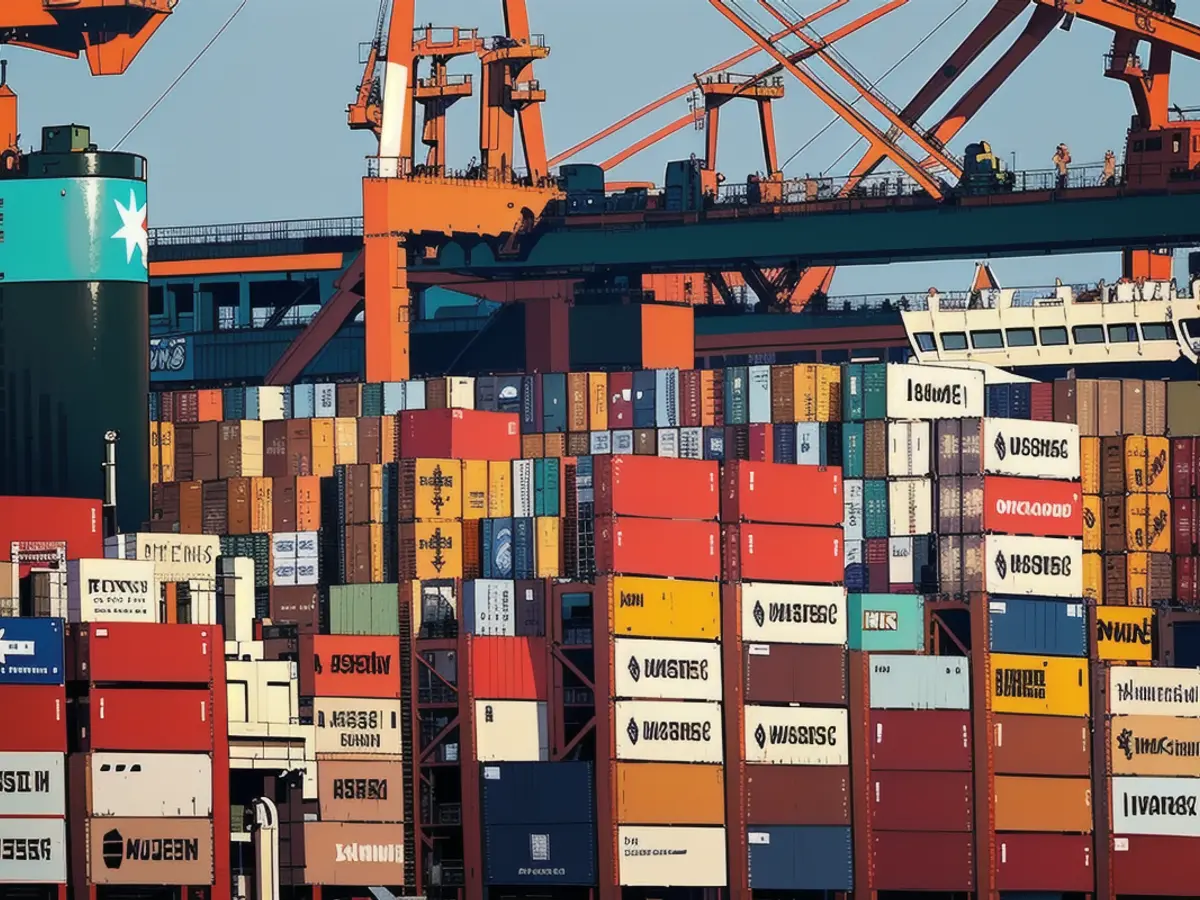German export sector displays newfound optimism, says it's been a while.
Based on the report from the IFO Institute, the German export industry is not currently experiencing "great growth," but there has been a notable improvement. Certain sectors anticipate a considerable increase in exports, but doing business with China is getting more challenging.
The German export industry's view of foreign trade has been less favorable than it has been in over a year. The indicator for export expectations climbed to +0.3% in May after dipping to -1.5% in April, according to the Munich IFO Institute. This is the highest reading since April 2023.
"The positive and negative responses are about equal," remarked Klaus Wohlrabe, head of IFO surveys. "The export industry isn't exhibiting much dynamism as a whole." The growth in specific industries varies significantly. For instance, beverage manufacturers anticipate a substantial increase in export sales. Additionally, the furniture sector and glass and ceramics production have similar expectations, as per the IFO Institute.
On the downside, data processing equipment producers encountered a dampener. They were unable to maintain the highly optimistic expectations from the previous month. "There's not much movement in machinery manufacturing and the automotive industry right now," concluded the IFO researchers. The textile and apparel industry, the printers, and the metal industry all expect a decrease in their exports.
The foreign trade contributed to Germany's economic upturn in the first quarter. The export of goods rose by 2.1% from January to March compared to the previous quarter—largely due to robust demand for "Made in Germany" products from the United States. This helped stave off a potential recession in Europe's largest economy.
The German Industry and Trade Chamber (DIHK), however, estimates a stagnant market for 2024 as a whole. For example, the Chinese market has become more challenging. "China has expanded its value chain, producing more and more complex goods it used to import from Germany," said Commerzbank economist Vincent Stamer. "Furthermore, German firms are increasingly producing on-site rather than exporting goods from Germany to China."
Read also:
- Lack of snow also opens up new opportunities for winter tourism
- Abrupt end to e-car subsidies
- The chemical industry has little confidence
- Intersport boss hopes for sales boom through sporting events
The Ifo Institute's report indicates that while the German export sector is not currently experiencing significant growth, there's optimism due to anticipated increases in exports from specific industries like beverage manufacturing, furniture, and glass and ceramics production. Conversely, data processing equipment producers and other sectors like textiles, apparel, printers, and metal industry expect a decrease in their exports, with China's market becoming more challenging due to shifts in their value chain and production patterns.
Source: www.ntv.de








